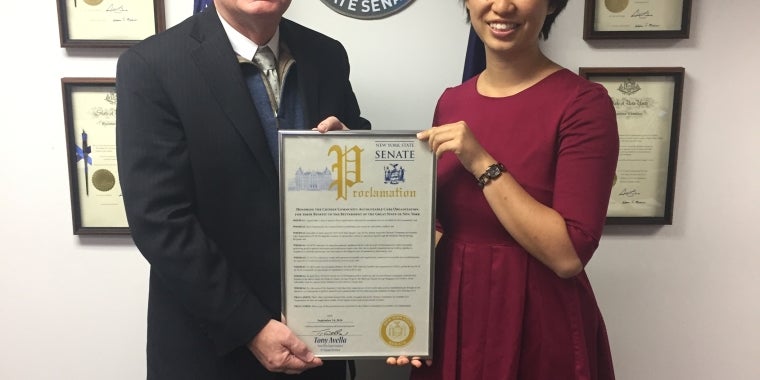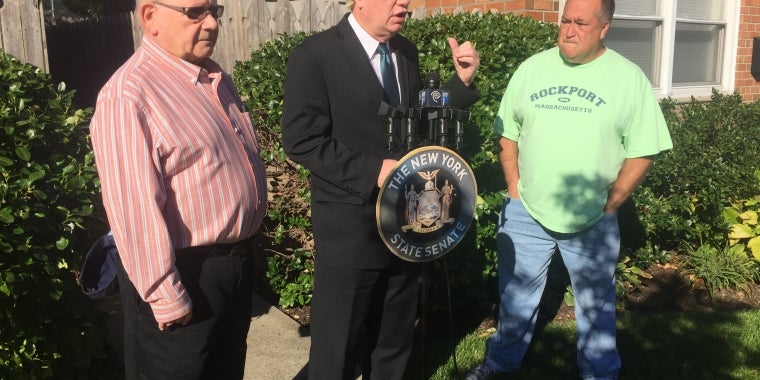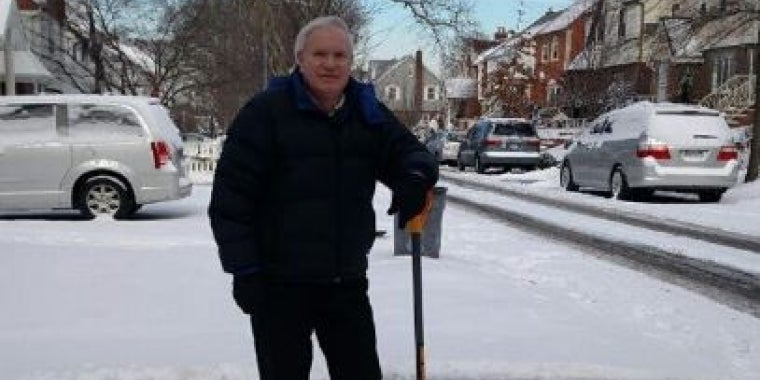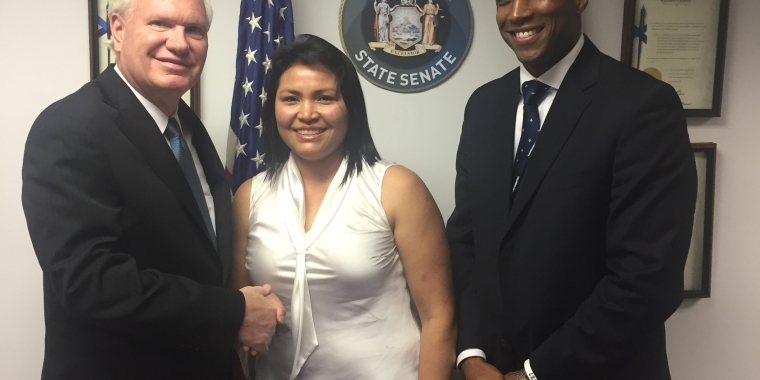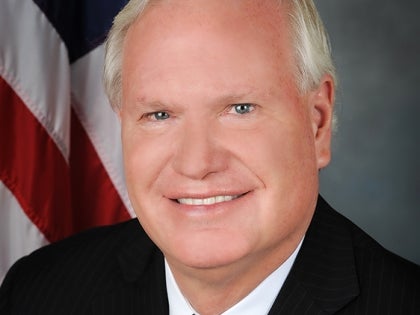
Senator Avella Announces Sweeping Accomplishments for Final Budget
Andrei Vasilescu
April 1, 2016
-
ISSUE:
- Budget
(ALBANY, NY) – State Senator Tony Avella applauded the passage of New York’s sixth on-time budget which included many of his and the Independent Democratic Conference's key policies, including middle-class tax relief, an investment into the Environmental Protection Fund (EPF), funding to establish a pipeline into New York City's Specialized High Schools for underrepresented students, Paid Family Leave, CUNY funding and the historic minimum wage increase.
As Vice Chair of the Environmental Conservation Committee, Senator Avella praised the $300 million investment into the EPF, and called it as an important step for New York.
“I am thrilled that the final budget has included a $300 million investment into the Environmental Protection Fund. This is a record investment into New York's environment. Protection for the environment is protection for New Yorkers, and I’m glad that my colleagues have taken this issue seriously,” said State Senator Tony Avella.
Senator Avella affirmed that the final budget succeeded in uplifting all New Yorkers across the economic spectrum, a priority for him and his IDC colleagues going into budget deliberations. The $1 billion tax relief package for households and individual filers earning between $26,000 to $300,000 will particularly help make New York more affordable for the middle class and working class. Also included in the budget is a minimum wage increase to $15, going into effect for New York City over three years to allow the economy to adjust.
“This truly is The Year of the Worker. A victory in the Fight for $15 and Paid Family Leave will make a tremendous difference in the lives of our workforce. New York State put together the best Paid Family Leave policy in the nation. Nobody will ever have to choose between what their heart tells them to do and what their bank account allows them to do. Our minimum wage workforce also get a raise and our middle-class households receive over $1 billion in tax relief. This is a budget that should make every New Yorker proud. I thank Senate Majority Leader John Flanagan, Assembly Speaker Carl Heastie and Governor Andrew Cuomo for their leadership,” said Senator Klein.
Senator Avella’s investment to boost underrepresented neighborhoods in Specialized High Schools, announced earlier last week when it was included in the Senate one-house budget resolution, has also been successfully passed in the final budget. The $2 million secured will staff every school with outreach coordinators and create free test preparation programs. Cuts to the CUNY budget were also successfully removed in the final budget, with an additional $20 million in funding for SUNY and CUNY community colleges.
“This has been one of the strongest New York state budgets passed in recent history, leaving no New Yorker behind. My colleagues in the IDC and I fought to provide tax relief for the middle class while securing the largest education investment in state history, secured funding to protect our environment and ensured that millions of New York workers receive a fair wage. This is an accomplishment we can be proud of,” said State Senator Tony Avella (D-Queens).
The 2016 budget will include:
· Paid Family Leave ensures that New York’s families can afford to take needed time to welcome a child into the world or care for a sick loved one. Under the new law, employees will be granted 12-weeks of Paid Family Leave while receiving up to two-thirds of their regular pay. Through a phase-in over four years, New York State will implement the best paid family leave program in the country.
· A $15 Minimum Wage puts money back in the pockets of New York’s working class. By introducing a raise in wages over three years for New York City, New York will be the first state in the nation to reach $15 by 2019.
· A major $1 billion tax relief package for the middle-class significantly reduces the taxes of millions of New Yorkers. The package aims to cut personal income taxes for households earning between $26,000 and $300,000. These tax cuts will bring meaningful relief to the middle-class, while encouraging financial spending and growth throughout the state.
· A record level of funding for transportation infrastructure reinvigorates all of New York’s transportation needs both upstate and downstate. An investment of $27 billion in the Department of Transportation and $27 billion in the Metropolitan Transit Authority inject much-needed funding while ensuring that New York’s transit projects move forward.
· Continuing the Facilitated Enrollment Program ensures that safe, quality childcare will be a reality for more New Yorkers. New York is one of the most expensive states in the nation for child care, and for many women that means having to choose between their careers or child-rearing. The Facilitated Enrollment Program provides low-cost child care to working women and men, while also offering parenting resources.
· The largest education investment in state history ensures that we build up our children’s future as we build up New York State. The state will invest over $175 million in the community schools model, which ties neighbors, teachers, administrators and volunteers together, to convert struggling schools to this successful model across the state. To address diversity in New York City’s elite Specialized High Schools, $2 million will be invested to establish outreach coordinators for every school, to ensure that students from underrepresented areas are given the resources they need. The funding will also build test prep programs in each school, to serve as a pipeline for students in need of support.
· An investment of $1.9 billion in housing addresses housing needs throughout New York State.
· A record $300 million investment in the Environmental Protection Fund enhances New York’s parks, keep the state’s water sources clean and protect the environment for all.
· A four-year extension of the Senior Citizens and Disabled Rent Increase Exemption will keep the successful rent freeze program, which keeps senior citizens and disabled residents in their own homes, at the much-needed income threshold of $59,000. It will extend it for an additional four years, ensuring that the vulnerable New Yorkers who depend on this program will be able to afford their rent.
